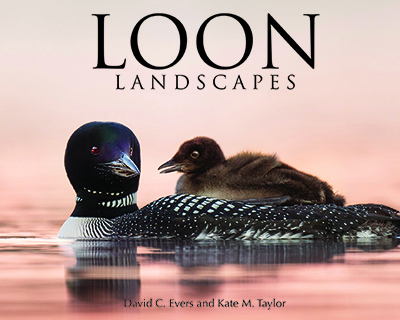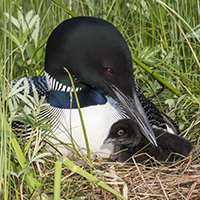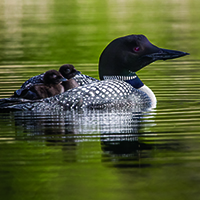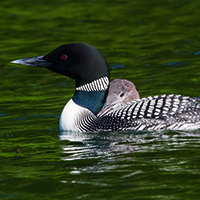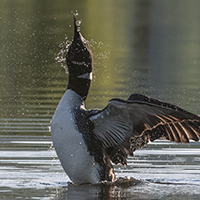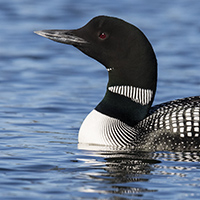
Common
Loon
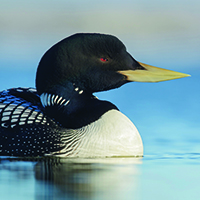
Yellow-billed
Loon
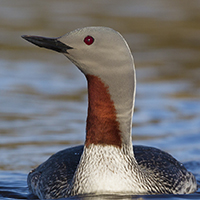
Red-throated
Loon
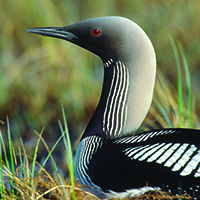
Pacific
Loon
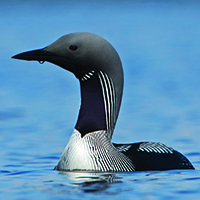
Arctic
Loon
Loon Research and Conservation
BRI’s Loon Program is dedicated to assessing current and emerging threats to loons, and to collaborating with the many agencies and organizations that work to conserve loon populations across the Northern Hemisphere. Our research and conservation projects contribute to understanding basic ecology and strive to unravel the impacts of ecological stressors and how they can be lessened.
The program is also actively involved in assisting state and federal conservation and management agencies in monitoring efforts that include the capture, banding, sampling, and tracking of individual loons and their populations. We publish our findings through reports, management plans, and communications pieces to inform decision makers and the general public.
Now available: IUCN SSC Loon Specialist Group Report
 The IUCN Species Survival Commission (SSC) is a science-based network of thousands of volunteer experts from almost every country of the world, all working together toward achieving the vision of “a just world that values and conserves nature through positive action to both prevent the loss and aid recovery of the diversity of life on earth.”
The IUCN Species Survival Commission (SSC) is a science-based network of thousands of volunteer experts from almost every country of the world, all working together toward achieving the vision of “a just world that values and conserves nature through positive action to both prevent the loss and aid recovery of the diversity of life on earth.”
The mission of the Loon Specialist Group is to contribute to increasing current knowledge on the ecology of all five species across their entire geographic range of distribution and promote long-term conservation. Read the report here.
Common Loon Research Across North America
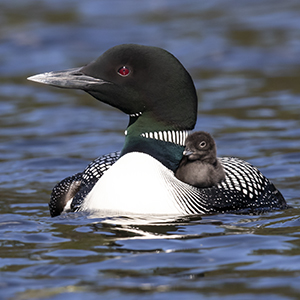
The Common Loon is a key bioindicator of aquatic integrity for lakes and nearshore marine ecosystems across North America. BRI conducts research throughout the United States and Canada to identify major threats to loons while also finding solutions to loon conservation issues.
Learn more about research efforts in the following states and provinces:
Common Loon Translocation
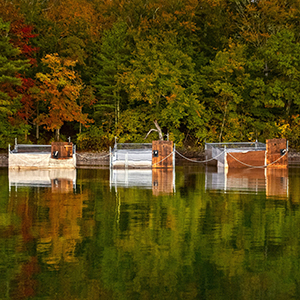
In 2013, BRI began one of the largest loon studies ever conducted. The initial 5-year scientific initiative, Restore the Call, aimed to strengthen and restore Common Loon populations within their existing and former range. Through this research effort, BRI has developed detailed translocation protocols and practices. This method of loon restoration can be replicated in ongoing and future projects.
Monitoring Specific Species
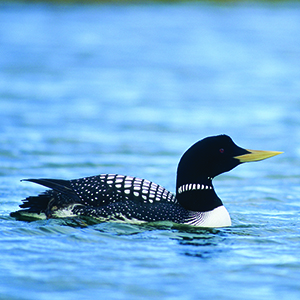
BRI conducts studies on four loon species worldwide. Efforts are concentrated on breeding areas with an emphasis on the Common Loon. We monitor migration using satellite transmitters. Winter studies are focused on Common Loons and Red-throated Loons.
Outreach and Education
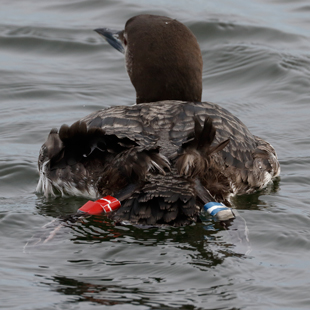
Learn more about how you can support and participate in loon conservation efforts in your region, from interpreting loon behavior and making smart lake recreation choices, to joining in citizen science initiatives, to supporting loon conservation with a donation.
Loon Media Library
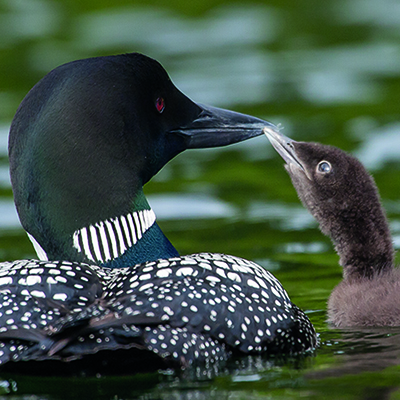
BRI news stories have appeared in many regional, national, and international news outlets. These stories help promote awareness of our work, but also promote the general issues of conservation biology and the need to continue research in wildlife health and its implications to human health. Click the link below to access our library of images and publications.
BRI’s Advisory Role in Loon Conservation
BRI has established itself as global experts on loon biology, restoration, and conservation, and works closely as an advisor or collaborator with the following organizations:

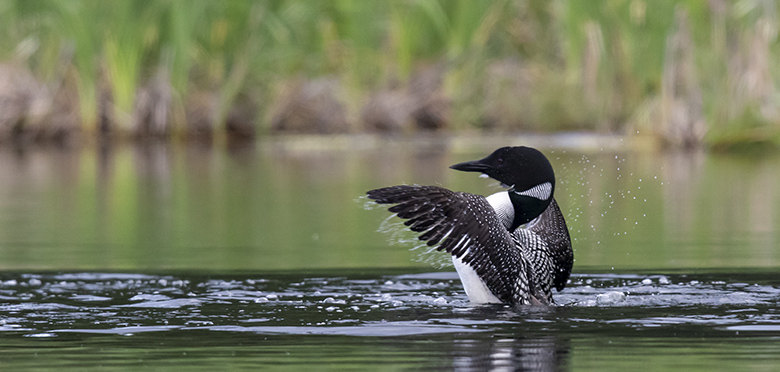
Photo Credits: Header photo © Daniel Poleschook; Loon Species: Common Loon © Daniel Poleschook; Yellow-billed Loon © Minden Stock ; Red-throated Loon © Ken Archer; Pacific Loon © Minden Stock; Arctic Loon © Minden Stock; Loon Rescue © Michelle Handley; Common Loon with chick © Daniel Poleschook; Loon aquatic pens © Jesse Costa (WBUR); Yellow-billed Loon © Minden Stock; Banded Common Loon © Alex-Tongas; Common Loon wingspan © Daniel Poleschook; Sidebar loon chicks © Daniel Poleschook

